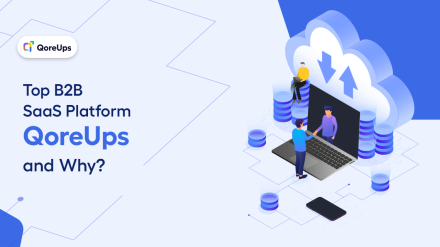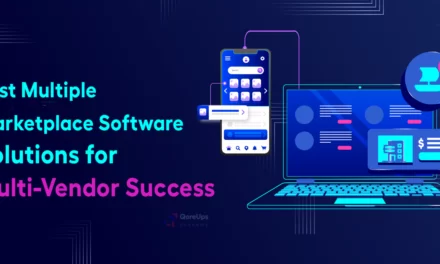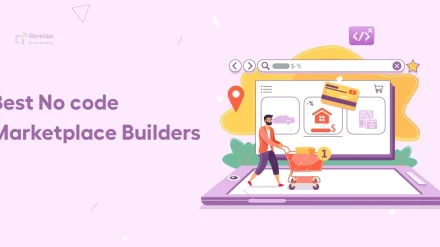In today’s dynamic real estate market, the management of rental properties demands agility, precision, and efficiency.
Whether you’re an individual landlord with a handful of properties or a property management company overseeing a diverse portfolio, the challenges remain the same.
You are ensuring seamless tenant experiences, optimizing revenue streams, and maintaining the integrity of your properties.
However, amidst these challenges lies an opportunity.
Adopting advanced rental management software is the solution.
This transformative technology offers a comprehensive solution to streamline operations, enhance tenant satisfaction, and drive financial growth.
In this comprehensive guide, we’ll delve deeper into the world of rental management software, exploring its features, benefits, and how to choose the best platform for your unique needs.
Understanding Rental Management Software
Rental management software represents the convergence of technology and property management, providing a robust platform to automate and streamline various aspects of property administration.
From lease management and rent collection to maintenance tracking and financial reporting, these marketplace software solutions serve as centralized hubs for property owners and managers to efficiently manage their portfolios.
By digitizing and automating routine tasks, rental management software empowers users to focus their time and energy on strategic initiatives, ultimately improving productivity and driving business growth.
Benefits Of Using Rental Management Software
Rental management software is a game-changer for businesses in the rental industry, providing numerous benefits that enhance efficiency, customer satisfaction, and profitability.
Let’s take a deeper look into the key advantages:
Streamlined Operations
Rental management software automates a range of processes, from managing bookings to tracking equipment returns.
This automation reduces the manual workload for business owners and staff, allowing them to focus on more strategic tasks.
Features like automated reminders for upcoming bookings or due returns help minimize administrative errors and improve operational efficiency.
Enhanced Customer Experience
With an intuitive, user-friendly interface, rental management software enhances the customer journey.
Users can easily browse available rentals, check real-time availability, and complete bookings seamlessly.
Features such as online reservations and self-service portals allow customers to manage their bookings without requiring direct interaction with staff, leading to increased satisfaction and repeat business.
Real-Time Inventory Management
One of the most significant advantages of rental management software is its ability to provide real-time tracking of inventory.
Businesses can monitor stock levels, manage equipment availability, and avoid the pitfalls of overbooking or understocking.
This real-time oversight helps businesses optimize their inventory, ensuring they have the right products available when customers need them.
Comprehensive Reporting and Analytics
Effective decision-making relies on data, and rental management software delivers comprehensive reporting and analytics features.
Users can access key performance indicators (KPIs), such as occupancy rates, revenue trends, and customer demographics.
This data helps businesses identify successful strategies and areas for improvement, enabling them to adjust their operations accordingly.
Automated Invoicing and Payment Processing
Managing finances is crucial for any rental business, and rental management software simplifies this process.
Integrated invoicing and payment processing streamline billing, reducing errors associated with manual entry.
Automated reminders for overdue payments enhance cash flow management, ensuring businesses receive payments promptly.
Marketing and Promotion Tools
Many rental management software solutions, including QMarket, come equipped with marketing and promotional tools.
These features help businesses run targeted advertising campaigns, manage discounts, and promote special offers.
By reaching a broader audience and retaining existing customers, businesses can increase their market share and boost revenue.
Cost-Effective Solution
While investing in rental management software involves an upfront cost, the long-term benefits far outweigh the investment.
By automating tasks, reducing manual errors, and optimizing resource allocation, businesses can save significant amounts on operational costs.
The improved efficiency translates to higher profitability and more available funds for growth and expansion.
Scalability
As rental businesses grow, their software needs evolve.
Rental management software offers the scalability necessary to accommodate an expanding inventory, increasing customer base, and growing transactions.
This flexibility means businesses can continue to use the same software as they scale, eliminating the need for costly migrations or additional training.

Why Does Your Rental Business Need Management Software?
Efficiency
Manual management of rental properties is not only time-consuming but also prone to errors.
Rental management solutions eliminate the need for manual intervention, automating repetitive tasks such as rent reminders, lease renewals, and maintenance requests.
By leveraging automation, property managers can significantly reduce administrative overhead, minimize errors, and ensure timely execution of critical tasks.
This newfound efficiency allows for better resource allocation, enabling property managers to allocate more time to activities that directly contribute to rental marketplace success, such as tenant acquisition and property optimization.
Organization
The complexity of managing multiple rental properties necessitates a robust organizational framework.
Rental management solutions provide precisely that, offering a centralized repository for all property-related data and documentation.
From lease agreements and tenant information to maintenance schedules and financial records, everything is neatly organized and easily accessible within the rental management platform.
This organizational efficiency not only reduces the likelihood of oversight and error but also enhances collaboration among stakeholders.
Whether it’s property owners, tenants, or maintenance personnel, everyone can access the information they need when they need it, fostering transparency and accountability throughout the rental process.
Tenant Satisfaction
At the heart of every successful rental business lies tenant satisfaction.
Happy tenants are more likely to renew their leases, refer others to your properties, and uphold the property’s condition.
Rental management software plays a pivotal role in enhancing tenant satisfaction by facilitating seamless communication and service delivery.
With features such as tenant portals and maintenance request tracking, tenants can easily submit inquiries, report issues, and track the status of their requests in real time.
Moreover, online rent payment options like PayPal, Stripe, Razorpay, etc., streamline the rent collection process, offering convenience and flexibility to tenants while ensuring consistent cash flow for property owners.
Financial Management
Effective financial management is critical to the long-term success of any rental business.
Rental management software simplifies financial workflows by automating tasks such as rent collection, expense tracking, and financial reporting.
With real-time insights into income and expenses, property owners can make informed decisions to optimize revenue and minimize costs.
Furthermore, advanced reporting capabilities enable property managers to analyze financial performance, identify trends, and forecast future cash flows accurately.
By providing a comprehensive overview of the property’s financial health, rental management software empowers stakeholders to make data-driven decisions that drive revenue growth.

How To Choose The Best Rental Management Platform
With a myriad of the best rental management platforms available in the market, selecting the right one for your business can be a daunting task.
To help you navigate this decision-making process, here are some key factors to consider.
Features
Evaluate the features offered by different rental management platforms and assess their alignment with your specific needs.
Look for essential features such as lease management, rent collection, maintenance tracking, and financial reporting.
Additionally, consider advanced functionalities such as vacancy management, tenant screening, and mobile access, which can further enhance the efficiency and effectiveness of your rental operations.
Scalability
Choose a rental management platform that can grow with your business.
Whether you’re managing a small portfolio of properties or overseeing a large-scale operation, scalability is essential to accommodate your evolving needs.
Look for a platform that offers flexible marketplace pricing plans and customizable features, allowing you to scale up or down as needed without disrupting your workflow or incurring unnecessary costs.
User-Friendly Interface
The usability of the rental management platform is paramount to its adoption and success within your organization.
Opt for a platform with an intuitive, user-friendly interface that minimizes the learning curve for you and your team.
Features such as customizable dashboards, drag-and-drop functionality, and contextual help resources can enhance usability and improve user satisfaction.
Additionally, consider platforms that offer mobile applications or cloud-based access, enabling users to manage properties on the go from any device.
Integration
Integration capabilities are crucial for seamless interoperability with other tools and systems within your ecosystem.
Choose a rental management platform that offers robust integration options with accounting software, property listing websites, communication platforms, and other third-party applications.
Integration eliminates data silos, reduces manual data entry, and improves overall efficiency by enabling seamless data exchange between systems.
Additionally, look for rental platforms that support open APIs or offer pre-built integrations with popular software solutions, ensuring compatibility and interoperability across your tech stack.
Customer Support
Reliable customer support is essential, especially during the onboarding process and in times of technical difficulties or questions.
Prioritize rental management platforms that offer responsive, knowledgeable customer support through multiple channels, such as phone, email, and live chat.
Additionally, look for platforms that provide comprehensive training resources, user documentation, and community forums to empower users to get the most out of the software.
A dedicated support team can serve as a valuable resource, helping you troubleshoot issues, optimize workflows, and maximize the value of your investment in rental management software.

QMarket – The Best Rental Management Software
QMarket stands out as the premier rental management software, specifically designed to cater to the needs of rental businesses across various industries.
Why QMarket Stands Out:
- User-Friendly Interface: QMarket is designed for ease of use, making it accessible for both business owners and customers.
- Comprehensive Features: From booking management to financial reporting, QMarket offers a wide range of features that cater to the diverse needs of rental businesses.
- Cost-Effective: QMarket provides competitive pricing options that ensure businesses can manage their rentals efficiently without breaking the bank.
- Robust Support: QMarket offers excellent customer support to assist users in resolving issues and maximizing the software’s potential.
- Customization Options: The platform allows for customization to fit the unique needs of various rental businesses, ensuring that each user can tailor the software to their requirements.

So,
Investing in the best rental management software is a strategic decision that can benefit property owners, managers, and tenants alike.
By leveraging advanced technology to automate and streamline rental operations, businesses can improve efficiency, enhance tenant satisfaction, and drive financial growth.
Whether you’re a seasoned property manager or a novice landlord, the right rental management platform can provide the tools and insights you need to succeed in today’s competitive real estate market.
As you search for the perfect rental management solution, remember to consider factors such as features, scalability, usability, integration, and customer support.
By conducting thorough research, evaluating your options, and aligning your selection with your business goals, you can make an informed decision that sets your rental business up for long-term success.
With the right rental management software in place, you’ll have the tools and resources you need to streamline operations, optimize performance, and achieve your full potential in the rental market.






